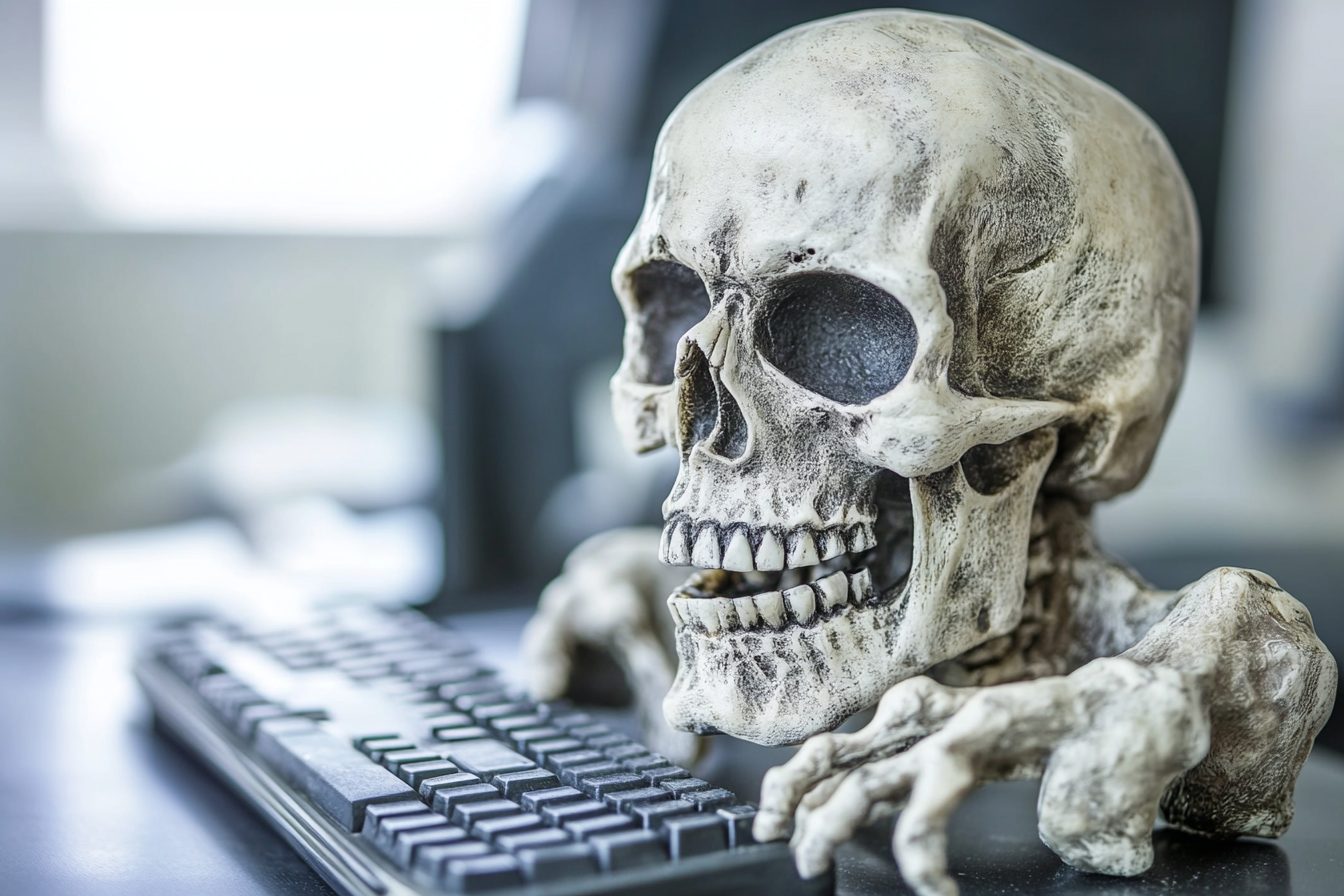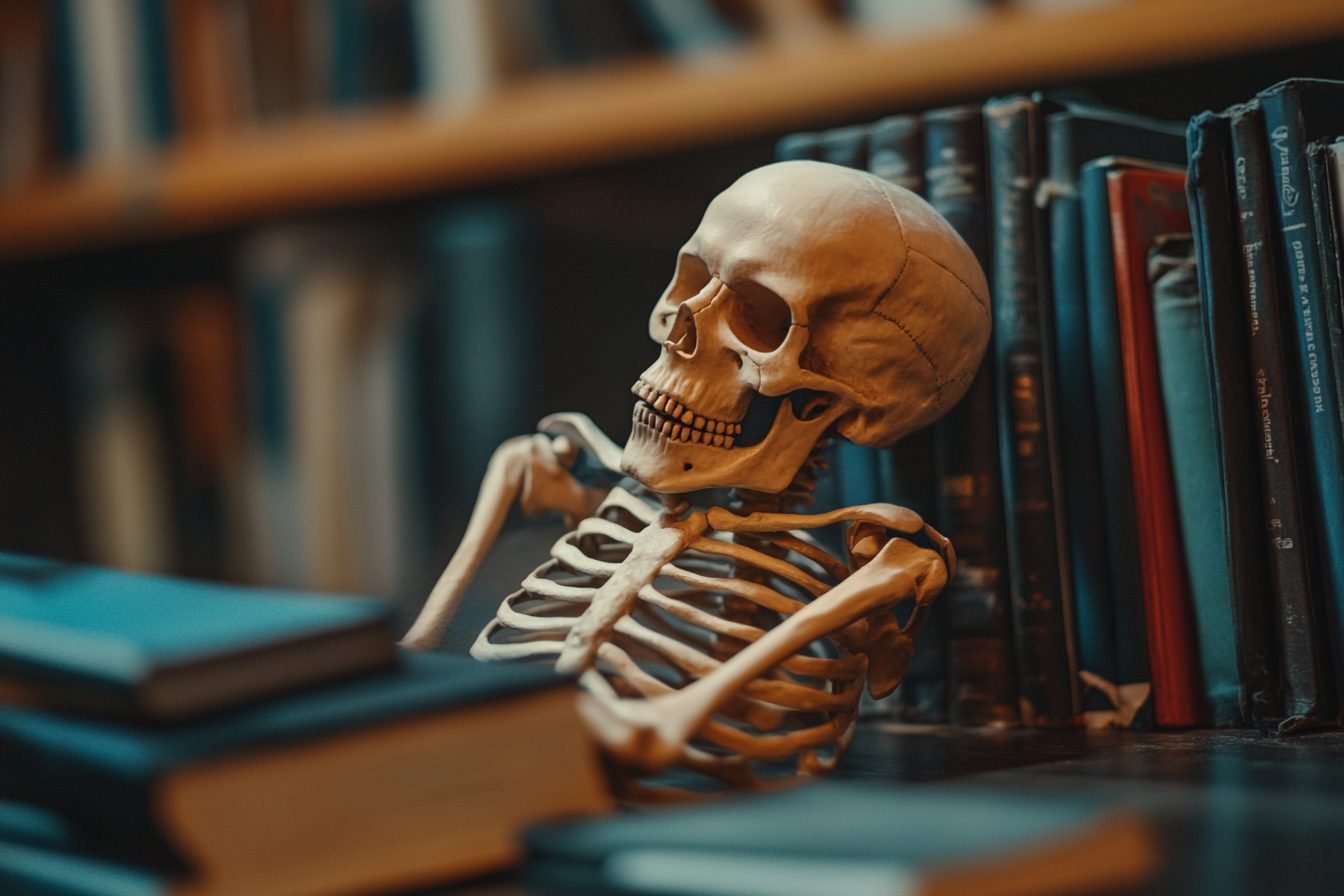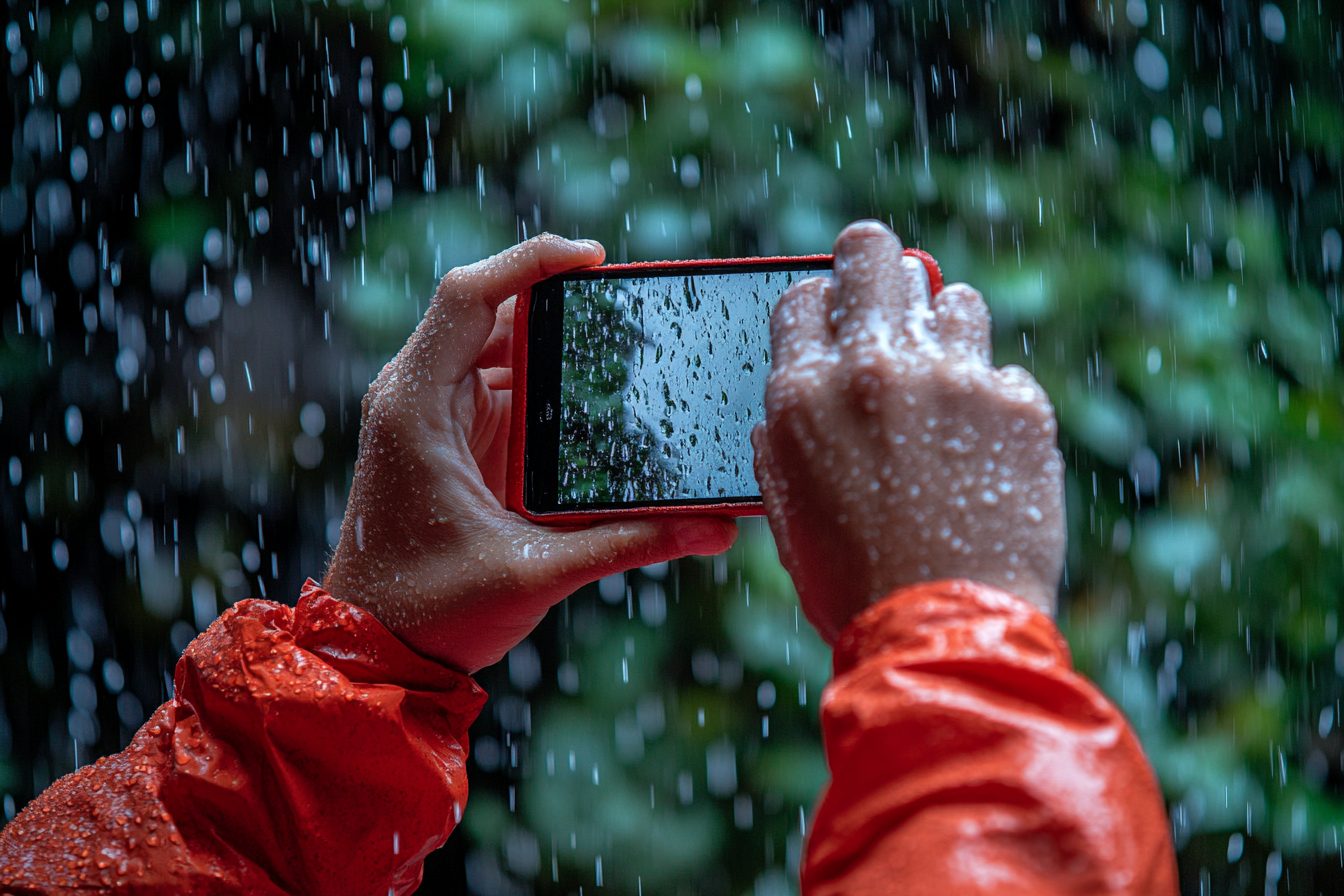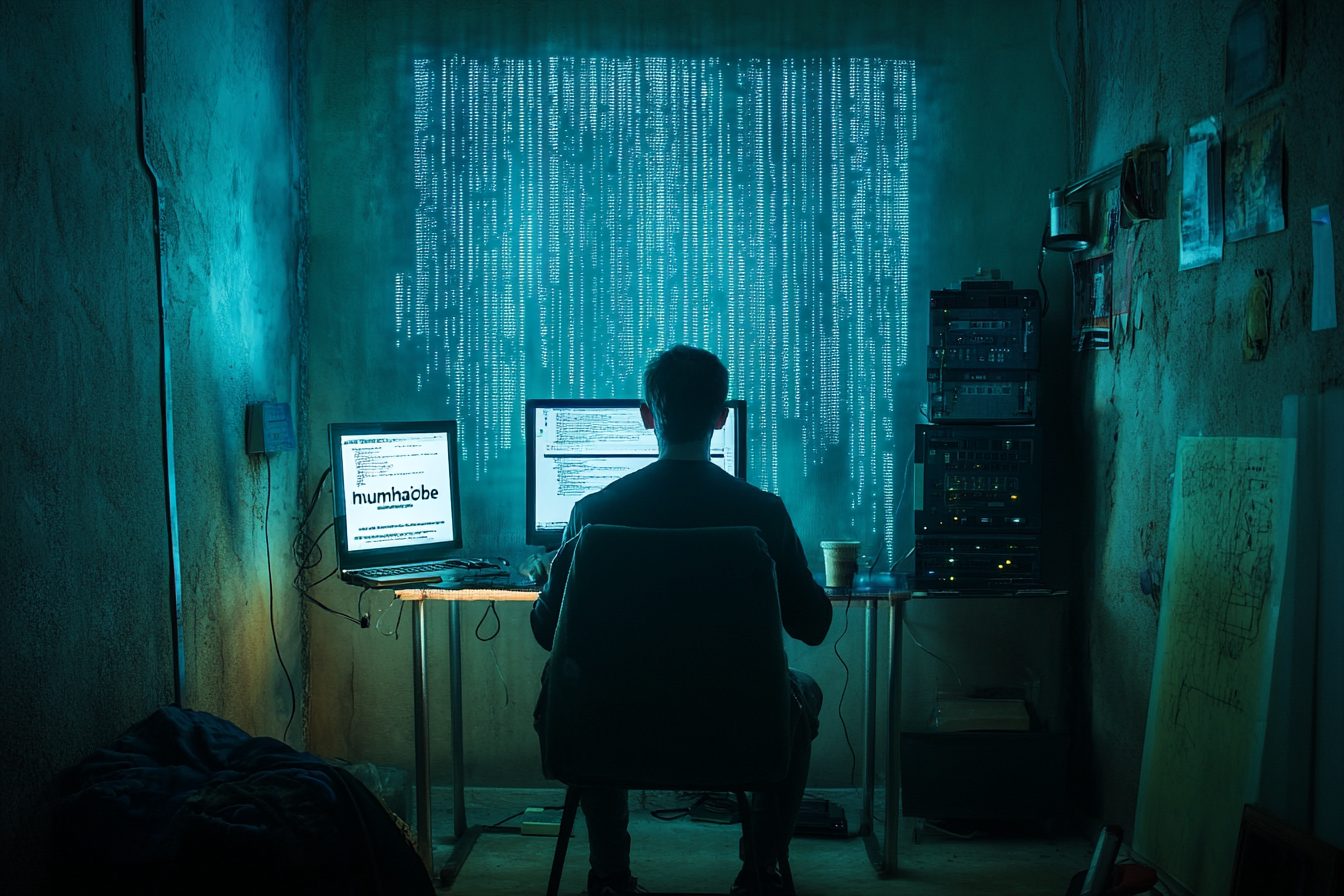A while back, while I was reading about digital inheritance, I had a striking realization. What would my wife do with my laptop and phone? If she gains access to them, she would have access to my entire life.
To make things worse, this is not the first time this morbid thought struck me. I always come back to this thought, pondering what story my digital trail traces tell me and more importantly – what does my algorithm think of me. Let’s start with the good news.
The good news is that the portrait itself is not any pretty picture. The bad part is that my browser history depicts a scary version of reality that I could mold perfect to my family after I die. The remaining parts of the history show that I am a working hypocondriac battling insomnia, struggling with severe levels of obsession over obscure historical events, and potentially contemplating a change of career to become a lighthouse keeper.
It further shows my deepest thoughts which simply baffle me, such as can cats actually detect ghosts or how do astronauts clip their nails in space. Basically, my history outlines all of the subjects which my fleeting interests lead me towards and instantly forgets me. If someone were to review my search history, they would most likely reach the conclusion that I spend about 30% of my free time trying to recall the names of actors from 90s sitcoms, 25% doing some self-correcting spelling and grammar checks, 15% getting lost into researching topics that do not relate to my life, and the rest trying to find answers to the solutions that I have created for myself.
I think the right term is “Renaissance man,” but in my case, it would be “person with very strange hobbies and horrible time management.”
The irony isn’t lost on me. For the last fifteen years working at [redacted major tech company] designing user interfaces, I helped build some of the very recommendation systems and anatomy search engines that digitally store my ugly reflection. We built systems that collect every single random thought, every shred of self-doubt, every late night anxiety fueled worry – all of which instantly make their way into the archive of who you seemingly are, regardless of whether you want them to.
We didn’t really put much thought into the consequences of granting eternal life to records that could one day serve as a digital definition of a person. This strange realization made me look back at my numerous digital accounts as if through the lens of a fictitious survivor sifting through my belongings. What I found was both funny and alarming: a disjointed self-portrait put together by an algorithm and data points that were never intended for posthumous scrutiny.
The history of my music streaming accounts suggests a man undergoing at least three midlife crises at the same time–pogoing from the angry punk of his teenage years, to obscure ambient soundscapes he discovered during a meditation phase, and, for some unknown reason, an obsession with sea shanties which the algorithm has now been conditioned to regard as a vital part of my identity. My podcast subscriptions imply that I simultaneously wish to start a business, learn enough astrophysics to carelessly drop space facts at social gatherings I hardly attend, and attempt to single handedly end capitalism. As a visual memoir, my cloud photo storage serves as an alternate universe where I primarily consume photogenic meals, travel touristy sites, and interact with my most telegenic friends.
It has fourteen close to identical attempts to document an amazing sunset, but hardly any capturing mundane Tuesday afternoons, the moments that truly make up most of my existence. In all honesty, it’s like my life’s highlight reel curated by someone who doesn’t even know me. My email archive may be the most misleading remnant, pointing out that I am a hub for retail marketing, subscriptions I intended to read but never did, and notifications from services I signed up for, only to forget about later.
Among these, there are important communications which include as heartfelt exchanges with distant friends and expressions of love or concern, all of which are now stored with the same value as a 3-year-old discount coupon for office supplies. Amazon purchase history is a magnificent example of a flawed psychological profiling tool. “Subject shows a brief, but intense, interest in diverse subjects as evidenced by purchases of books related to the specified subjects that are never mentioned in later orders.
Exercise equipment purchases correlate highly with New Year periods and then remain dormant for long periods. Remarkable pattern of buying replacements for household items which seem to be lost with astonishing frequency.”
Even my password manager, which serves the purpose of holding my passwords, tells a story – the archeological record of services I have engaged with online over decades. Social networks that no longer exist.
Blogs that were abandoned, dating websites used before meeting my wife, forums for hobbies I no longer pursue, courses started but never completed. Each login represents a unique relationship that was formed and forgotten and preserved forever like insects in amber. My presence on social media, which is perhaps most worrying, features a constructed self, not too far off from reality.
In this alternate realm, I go through perfectly captured moments of insight or laughter while never having to face any negative feelings beyond some mild anxiety (which is somewhat funny), and having sensible opinions on complicated issues that can be addressed in a character-limited format. This digital version of me is like a movie trailer, in which everything is accurate, yet devoid of all meaning—that is the full film. My location history might be the most revealing digital artifact, faithfully recording the rhythms and routines of daily life.
It captures, for instance, my weekly Wednesday drives to my mother’s house, coffee shop writing sessions on Saturdays, and my gym attendance, or lack of. It chronicles sequential visits to the same places, loyalty to certain restaurants, and so rigid patterns that they might very well reveal more about me than the patterns themselves. Among the stroke of ordinary pinpoints, there would be random outliers—an unfamiliar neighborhood on a Tuesday, or a drive in the dead of night with no apparent reason—mysteries I could no longer explain to puzzled survivors.
Various tech experts have proposed their own methods to deal with the legacy issue. Some suggest the implementation of a “digital cleanse” routine where clearing browser histories, old accounts, and embarrassing content is a necessity. Others endorse the use of companies that promise to delete specified assets after death, like an executor standing by ready to irreversibly delete data after confirmation of death.
The more extreme versions have detailed orders to preserve certain assets, while others instruct them to be deleted or burnt without being looked at. To this date, these suggestions remain unadopted upon due to the philosophical questions accompanying each suggestion and simply because of my laziness. Scrubbing my online history feels too much like creating a sanitized version said to bare no oddities that capture the essence of being human.
Deletion services assume an extraordinary amount of trust in technology and also the presence of the company offering those services. Having a detailed digital inventory is considered by most people to be exceptionally tedious and is shunned. In fact, I had to think over a new one: accepting the reality of digital incompleteness because there is no denial that certain elements of our online lives are permanently incomplete, frequently embarrassing and never accurately portray the human beings behind them.
If, for instance, the browser history stating that I have searched for “symptoms of brain tumor” fourteen times this year actually exists, then it is more authentic than the heavily curated social media persona of health anxiety devoid social media user. Although I still worry about digital remnants, this viewpoint transforms my fear of being exposed to a the reality of human imperfection and instead accepting it. While the algorithmic assumptions baked into my accounts definitely portray me in the most funny ways, they also represent a part of me and subtly capture elements of my humanity – My interests, my insecurities, my fleeting obsessions for subjects I will never have the ability to master yet momentarily discovered most interesting at 2 AM.
On a positive note, I have made one tangible alteration to my plans. My will now contains instructions detailing how my digital accounts can be accessed, including guidance to trusted people on where to provide the required passwords: “Preserve anything that may be treasured by my kin. Eliminate anything that may bring unnecessary suffering.
For the rest, make salutary decisions acknowledging that my digital remains are empty shells of the person I was.”
This statement accepts a harsh reality of our digital legacy: no matter how much we try to prepare, we ultimately lose control over the narratives of our lives to strangers after we pass away. The people who genuinely knew us will try to make sense of our digital remains through their lived experience, but they are bound to miss the distortions created by the algorithm. What soothes me is recalling how preceding generations also left behind incomplete materials that needed context to make sense of.
My great-grandparents constructed photo albums that featured only the most important events alongside their best clothing. My grandparents had checkbooks that detailed a lot of transactions, but they missed the heart behind the spending. My parents had bookshelves full of them, but the books did not show what they thought of the books’ contents.
We possess significantly more digital material after our death, but these remains fail to encompass the full humanity of their creators. In the event of my death, I invite you to draw guidance from this passage, although it takes a great deal of effort to assume control of my accounts: In the above, “The individual exposed in my browser history, email archive and algorithmic profiles is, indeed, ‘me’ but through a glass darkly.” Those digital breadcrumbs capture fragments of my interests and concerns but fails to encompass the context that would have made them meaningful. In The Searchers: The Searchers and Other Westerns: The Films of John Ford the embarrassing searches portray slivers of self-exploration or panic, not the sum total of self.
The unfinished digital work represents not failure but the spirit of inquiry of a participating intellect. Yes, and kindly scrub my browsing history. Not because it is shocking in any way, but rather because it is one of those things which is best left alone even at this day and age of technology.
Allow me to be gently eroded in remembrance from the effects of time – let the contours of essence remain while the filigree is effortlessly eloped with. After all, forgetting is as human as remembering, and, perhaps, instead of restricting our digital legacies to action and memories, they would serve us better if the former were to tip the scale of fruition towards complete and utter difiguration. Also, it’s not like anyone really has to know that my last Google search history is either “symptoms of common cold vs.
rare tropical disease” or “why does my elbow make that noise.” Some digital secrets are best remaining secrets.







